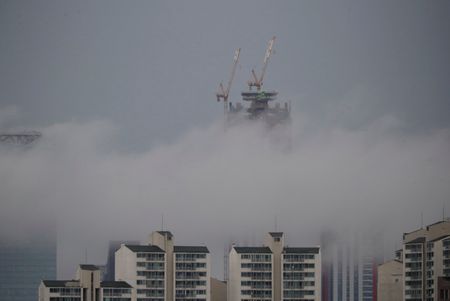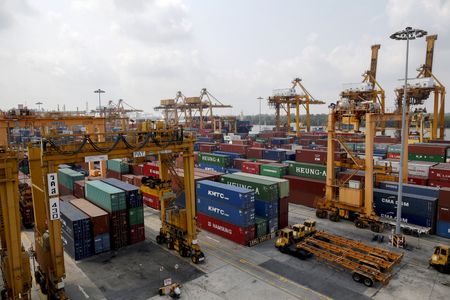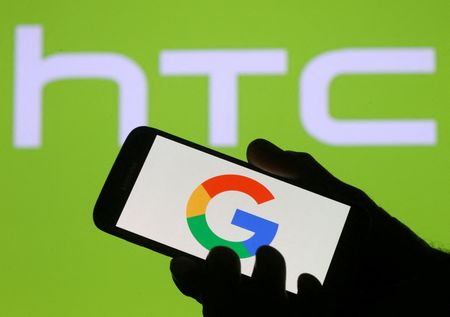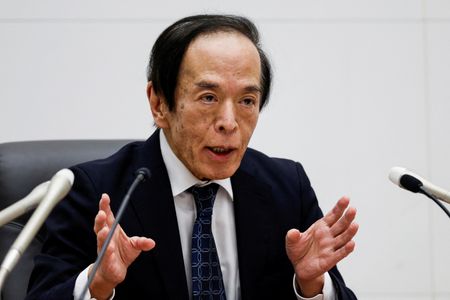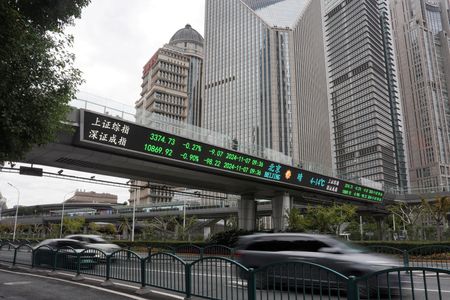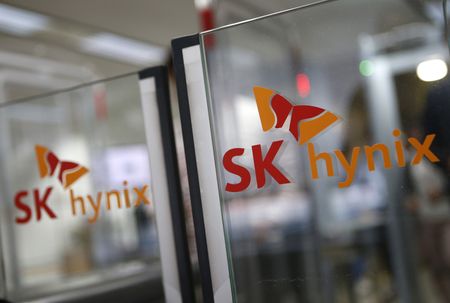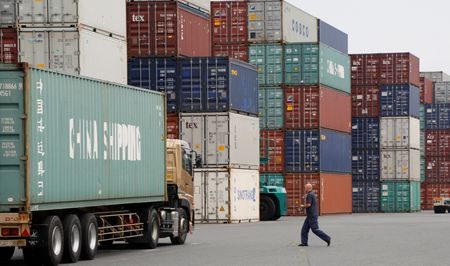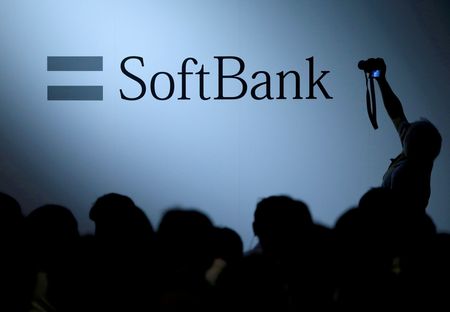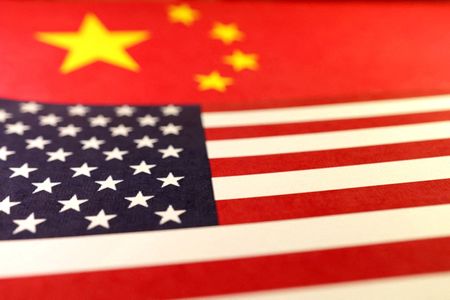By Jihoon Lee
SEOUL (Reuters) -South Korea’s economy barely grew in the fourth quarter of 2024, as the country’s worst political crisis in decades hurts already weakened domestic demand and threatens to further sap growth in a year of rising external risks under a second Trump presidency.
In December, consumer and business sentiment dampened amid political chaos, after President Yoon Suk Yeol was impeached and suspended from duties over his short-lived bid to impose martial law, followed by the impeachment of Prime Minister Han Duck-soo.
That impact saw gross domestic product (GDP) expand just 0.1% from a quarter earlier on a seasonally adjusted basis, the Bank of Korea’s advanced estimates showed on Thursday.
It was weaker than increases of 0.2% forecast in a Reuters survey and 0.5% projected by the central bank less than a week before Yoon’s Dec. 3 martial law edict.
Asia’s fourth-largest economy has struggled through 2024, having narrowly avoided a technical recession in the third quarter when it grew 0.1% following a 0.2% contraction in the second.
Worryingly, the BOK and economists expect the political crisis to remain a dampener on growth this year too.
“Economic sentiment weakened significantly on political uncertainty, which will continue to affect the economy as a risk factor in the first quarter and throughout the year,” a Bank of Korea official told a briefing, warning that this quarter’s growth could also miss the central bank’s November forecast of 0.5%.
Shivaan Tandon, markets economist at Capital Economics, concurred: “We suspect that the weakness in activity could persist in the near term due to the ongoing political crisis and the bleak outlook for the construction sector.”
The benchmark KOSPI fell as much as 1.1% in morning trade after the data release, despite Wall Street’s overnight rally to a record high, while the won weakened.
TRUMP FACTOR
In 2024, the South Korean economy grew 2.0%, after expanding 1.4% the year before, but growth is projected to slow in 2025 to 1.6% or 1.7%, below the estimated potential of around 2%, according to the BOK.
In the October-December quarter, GDP grew 1.2% on an annual basis, the slowest pace since the second quarter of 2023.
Consumption was a major drag. Over the quarter, consumer spending rose 0.2% and corporate investment grew 1.6%, weaker than the previous quarter’s gains of 0.5% and 6.5%, respectively, while construction investment fell 3.2%.
Exports rose 0.3%, making a modest recovery after their fall of 0.2% a quarter earlier, led by sales of semiconductors on robust demand for artificial intelligence, though there are worries that U.S. President Donald Trump’s tariff threats against its major trading partners could hit South Korean shipments.
“The sub-par fourth-quarter GDP result is concerning, and the country will need to find a way to bolster the domestic economy and negotiate with the United States to limit the impact of tariff hikes,” said Danny Kim, Associate Economist at Moody’s Analytics.
MORE STIMULUS EXPECTED
All of this meant policymakers will be under pressure to step up stimulus, economists say.
“We are seeing almost no growth for the first quarter as it is hard to expect a recovery in domestic demand while exports are also weakening,” said Park Sang-hyun, chief economist at iM Securities.
“The Bank of Korea will definitely lower interest rates in February and will probably have to in April as well,” Park said, expecting the government to draft an extra budget as early as in the second quarter.
South Korea’s central bank is expected to lower interest rates next month by 25 basis points, and twice more this year to 2.25%, after its unexpected rate-hold decision this month to prevent the won – which weakened the most among Asian currencies last year – from falling further.
There are also growing calls from economists and opposition lawmakers for the government to draft a supplementary budget to support frail domestic demand, with no less a figure than BOK Governor Rhee Chang-yong arguing the case last week.
Finance Minister Choi Sang-mok, serving as acting president, said earlier this week the government was willing to discuss it with parliament.
(Reporting by Jihoon Lee; Editing by Sandra Maler and Shri Navaratnam)

